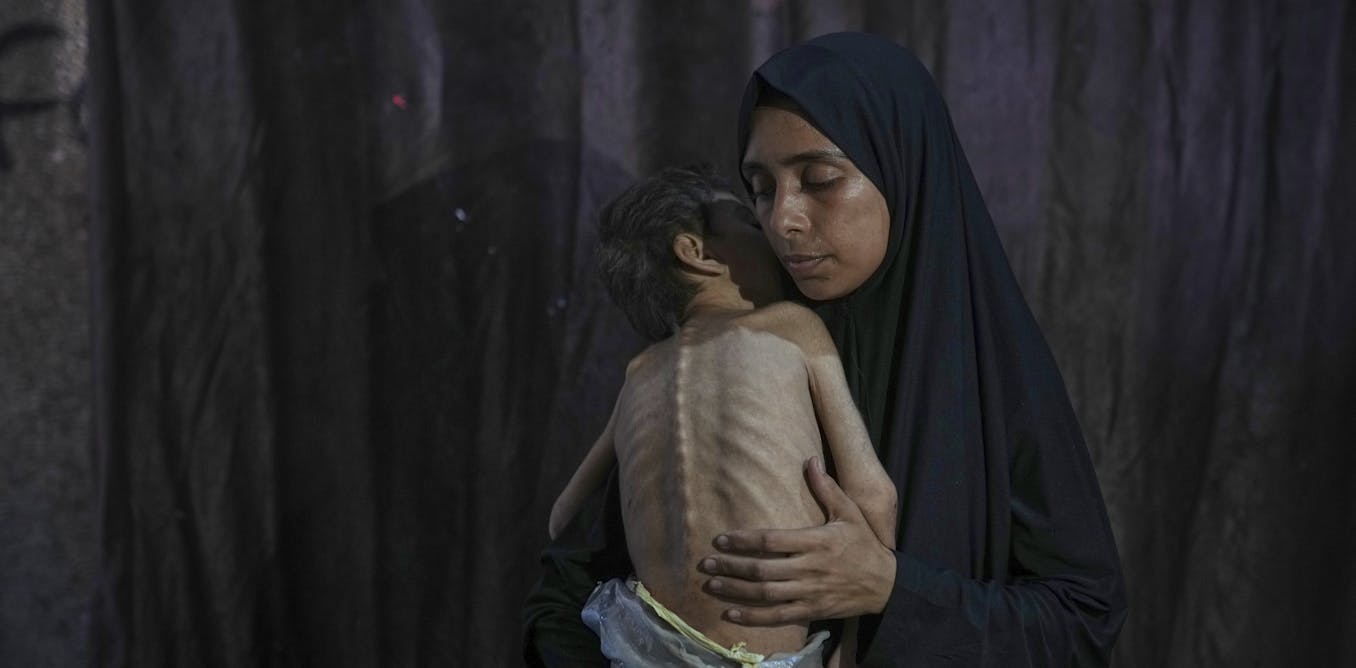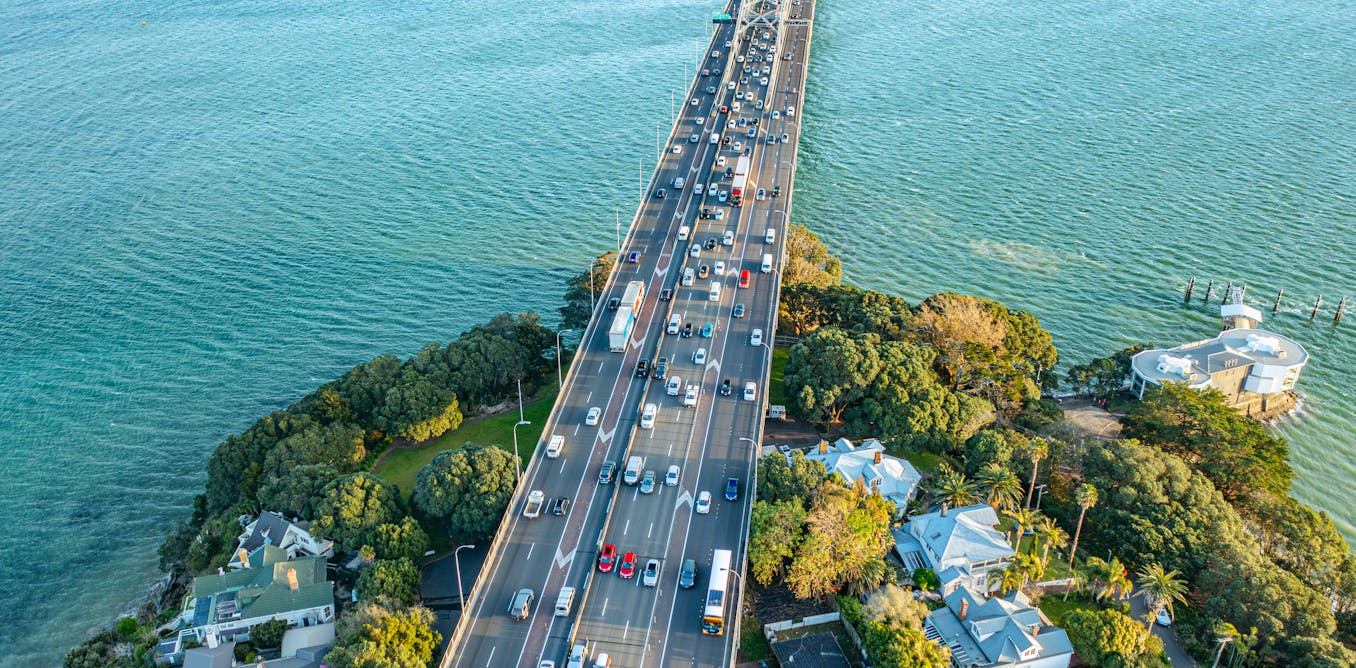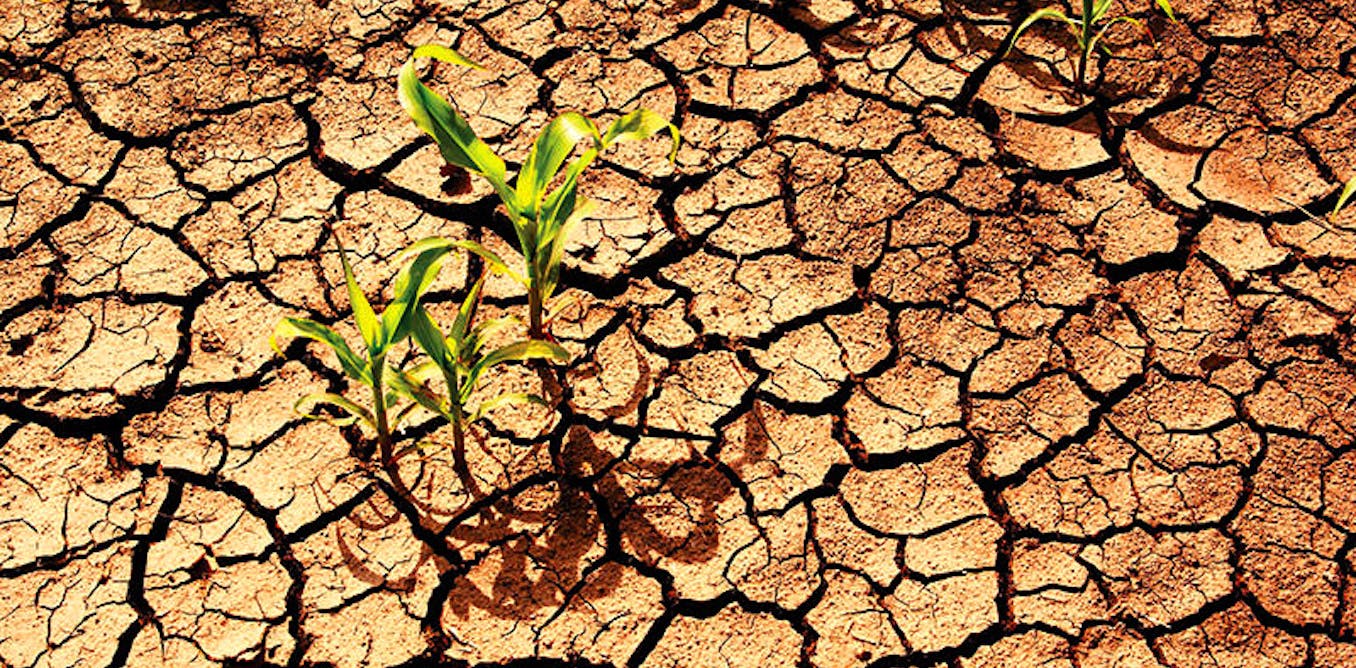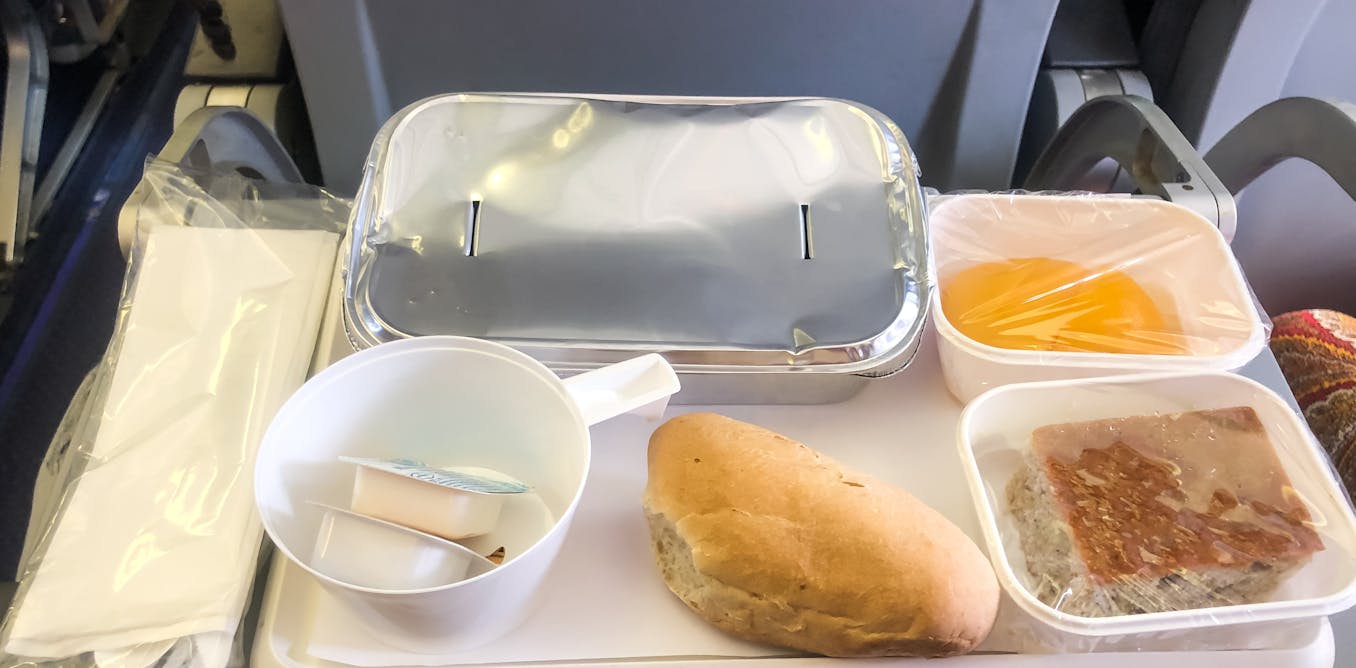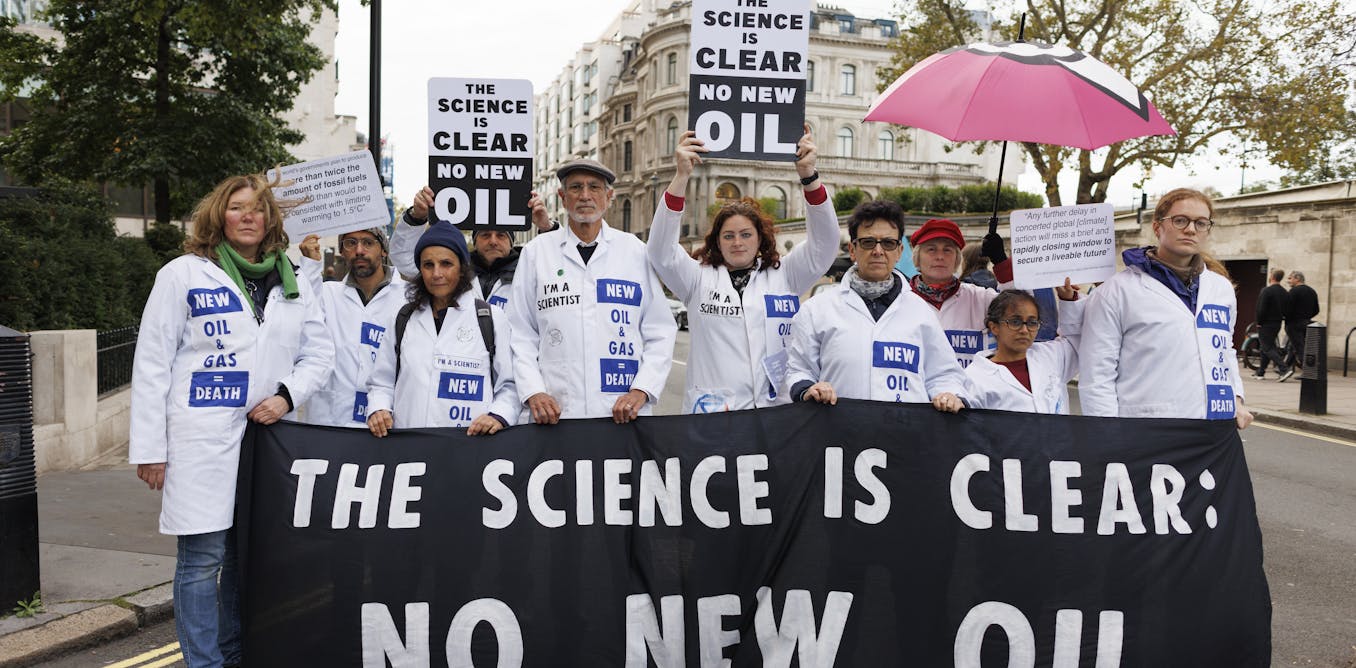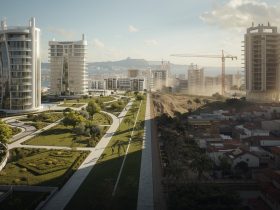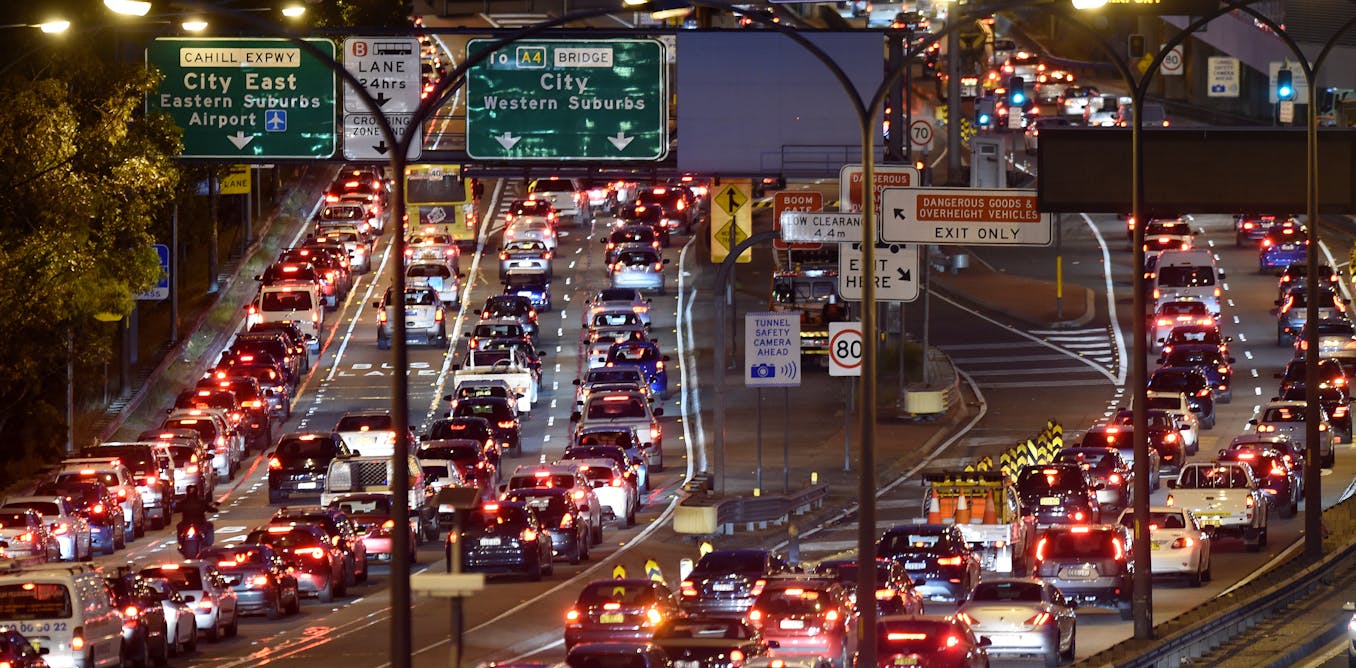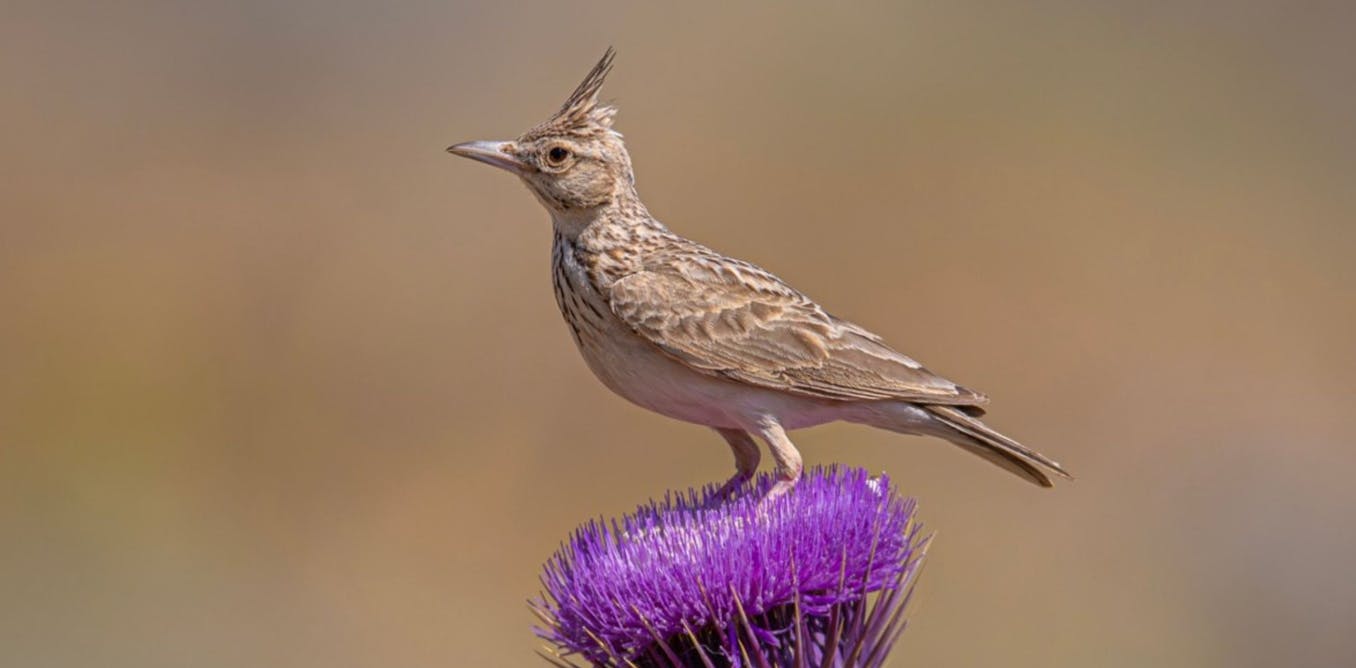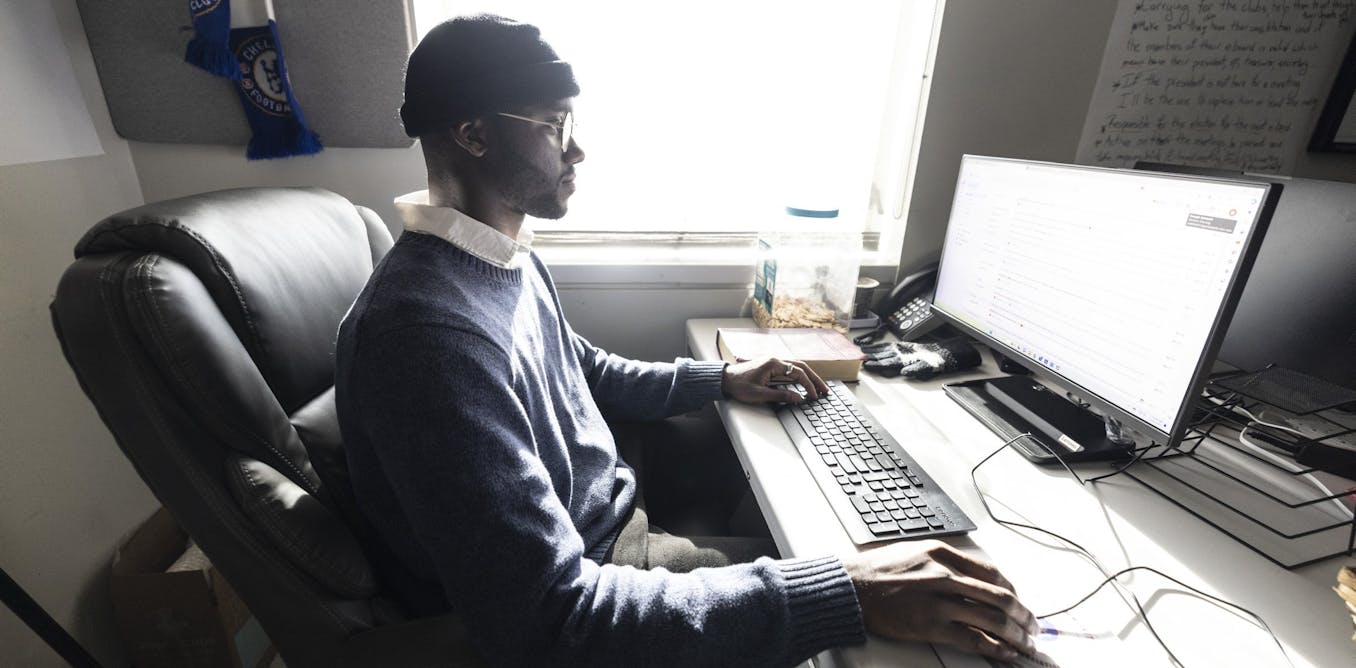In 1983, Rossella Aquilanti moved to the abandoned village of Pentedattilo, in southern Italy. Today she is 63 years old and needs help with her farm. She met Maka Tounkara from Mali in a refugee shelter. The young farmer agreed to join her.
Calabria suffers from high unemployment. Many young people have had to leave the region. Rossella Aquilanti, by contrast, has created her own paradise here: 20 goats, a few olive trees and the magnificent surroundings are all she needs to be happy.
Maka Tounkara came to Italy on a refugee boat. For him, working with Rosella is an opportunity. The wages he earns allow him to support his fiancée back in Mali. Despite being very different, Rosella and Maka get on very well and work side by side.
The village of Pentedattilo, perched on the side of a mountain in Calabria, is falling increasingly to rack and ruin. But once a year it comes to life for the Pentedattilo Short Film Festival. The event draws cinema lovers, former residents, and inquisitive tourists, who have to walk the steep path up to the village.
Rossella and Maka are convinced that their simple, self-sufficient way of life could be an inspiration to others. The last two residents of Pentedattilo are hoping that other young people and migrants will follow their example and bring new life to Italy’s ghost towns.
#documentary #dwdocumentary #italy
______
DW Documentary (English): https://www.youtube.com/dwdocumentary
DW Documental (Spanish): https://www.youtube.com/dwdocumental
DW Documentary وثائقية دي دبليو (Arabic): https://www.youtube.com/dwdocarabia
DW Doku (German): https://www.youtube.com/dwdoku
DW Documentary हिन्दी (Hindi): https://www.youtube.com/dwdochindi
An abandoned village in the south of Italy. Itís been 50 years since these houses were last occupied. Pentedattilo is one of many ghost towns in Calabria. But perhaps itís just too beautiful to be abandoned completely. Rosella Aquilanti has lived in these barren hills for the past 40 years. Leon! Aramis!
Aramis! Ciao, ciao, ciao! She still tends to her goats every morning. But for the past two years, sheís no longer been alone. Now she has Maka Tounkara at her side. Letís fly!!! Maka comes from a small village in south-western Mali, where he worked as a shepherd and farmer.
That was before he came to Europe as a refugee. Ok Maka. You can start. Oh Stracciatella! These are my beautiful ones!… Yes, youíre pretty – pretty, pretty, pretty! If you live in the countryside, you need animals. Especially if you want to be self-sufficient. Theyíre important for us and for the land.
They provide us with food. They need something to live on themselves, but they give so much back. But Rosella is now 63 and can no longer manage all the work on her own. Maka came just at the right time. Rosella met him two years ago at a refugee shelter.
She had long been on the lookout for someone to help her, but hadnít found anyone willing to live and work with her in this remote location. Maka is great. Heís so kind, very respectful, and not afraid of hard work. He also knows what heís doing and in fact he actually likes being here
Because itís so much like his own country, so he feels at home. We work really well together. The Calabria region is suffering from a prolonged drought. Maka sometimes walks with the goats for half a day, to find food for them.
Moving from place to place and working hard, in search of a better future – is a way of life that Maka is no stranger to. When he left Mali, he got by doing odd jobs – first in Algeria, then in Niger and then in Libya. But his goal was to get to Europe.
After six years, he finally made it onto a refugee boat that took him across the Mediterranean to Sicily. Later he came to Calabria. I like it here. Itís nice. But the problem is that thereís nobody here. No one lives here. Itís just the two of us in Pentedattilo. So itís not easy.
There are hardly any jobs in Calabria, and few prospects. Youth unemployment stands at 37%, the highest in Italy. Many just want to leave. But for Maka, this very place has provided the opportunity he was looking for. Rosella, meanwhile, has carried home the fresh goat milk…
…Back to the village where no one else lives. Pentedattilo is one of 20 so-called ghost towns in Calabria. Italyís poorer south is strewn with deserted villages. When Rosella first came to Pentedattilo, the village had already been uninhabited for 10 years. That was back in 1983 when she was in her early 20s
And searching for a life of freedom and independence. This house will collapse soon. The roof has already gone… When I arrived here, the house was all still intact. There was another here too. The village of Pentedattilo dates back to the year 640 BC. After several landslides, the village was finally abandoned
In the early 1970s. All the remaining residents had to leave their homes. But Rosella came with the intention of staying, right from the start. She gave up her job as a postal worker near Milan and left her old life behind her.
Many people are shocked when they hear that I live in an abandoned village. Many are so afraid of being lonely. They even fear silence. But others admire me because I lead such a simple life. And somehow, Iím keeping this place alive. Otherwise, it would really be a ghost town.
On the slopes around the village, Rosella harvests wild herbs. She calls this area her secret garden. I canít say what drove me to come here. There are some things where, even forty years later, you still wonder why you did them. But what I like about this place most, is the incredible environment.
Every moment is a moment of ecstasy, of meditation because itís so beautiful. Maybe I came back here to inspire young people to work with their hands again. Iíve always found it satisfying to work hard, to sweat, and then see the fruits of my labour afterwards.
But the drought of recent years has made her life more difficult. She couldnít have a vegetable garden that needs a lot of water. And so Rosella has learned to live from the little that nature provides her with. Casa Rosella – this is her home. When she first moved here,
She persuaded the previous owners to sell her the house for a good price. Itís time for lunch. Garlic, rocket salad and some dandelion. Rosella doesnít need much more. We do have pasta. Iíll mix in the sad looking vegetables which is all I can harvest in this desert landscape.
And add a few old potatoes. Makaís room is right next door. He has his own cooking facilities and has prepared some meat and liver from one of the goats, served with a spicy sauce, and couscous. Italian cuisine is still not really his thing. I love cooking… And Malian food is the best.
Maka is almost obsessed with cooking. I always tell him, youíre a real chef! I think itís also a way for him to reconnect with his homeland and the familiar tastes of home. Maka, hurry up! Iím ready, you too? They may cook separately, but they still eat together.
Conversation at the table is limited. Maka canít yet speak enough Italian. Want to try mine? No? We often disagree. He wants to do things his way, and I want to do them my way. Heís young and Iím old. Thatís life. At some stage, the older generation has to make way for the young.
Does school start again today? They may not share their food, or always agree, but Rosella and Maka have decided theyíll be there for one another. I think Rosella also sees that I feel at home here. Thatís why I give my all when Iím working.
For me, itís like working for my own mother. So I do my best. Itís an arrangement that benefits them both. Maka has a work contract, wages, and a new home. And Rosella can continue living here in her own personal paradise because of his help.
Twice a week, Maka rides his bike to a neighbouring town where heís learning Italian. He never got to go to school in Mali. Off we go! But first he has to carry his bike, until he reaches a road. I like going to school. Education gives you freedom and independence.
Sometimes I still feel lonely here because I donít speak the language well. Itís difficult to communicate. I hope that by going to school, I will understand more and more Italian and things will change. After Maka landed in Sicily in 2018, he spent two years being moved from one refugee shelter to another.
His residency status has still not been clarified to this day. But here in Calabria, Maka has regained some of his freedom. You never know what to expect when you come to a new place. Maybe it would be the same if a European,
Who had only a vague idea of Mali, went to live there. Itís usually not what you thought. And thatís how it was for me. The evening classes are free of charge and a real opportunity for Maka. Knowledge of Italian and a permanent job with Rosella
Are exactly what he needs to be granted an official visa. Maka really needs to learn Italian and get a driver’s license. Then he can decide what he wants to do with his life. But he needs these basics, especially the language. I think that’s the most important thing right now.
After that, we’ll have to see. At the end of the summer, Rosella prepares supplies to carry them through the winter. We only have to buy a very few things, because we produce most of our food ourselves. And thanks to the goats, we always have meat, milk and cheese.
I try to be as self-sufficient as possible, because I donít like going to the supermarket. I never know what to buy when I see all those polished vegetables in packaging. I feel really uncomfortable. Instead she preserves everything herself. First, she marinates the summer vegetables in brine for two weeks.
Then she mixes the aubergines, carrots and peppers with fresh herbs and lots of olive oil! The olive oil is such a blessing! It has life in it! Now I use my hands. I prefer to do it with my hands. Look, it has all the goodness and energy of the summer sun in it,
That will help warm us up in winter. Itís beautiful! Many have been fascinated by Rosella and her way of life. They wanted to join her in this ghost town. But none of them stayed for long. I canít imagine any other life. Thereís nothing that I would change.
And thank God, I had the great fortune of meeting Maka who makes it possible for me to continue. Iíve had friends in the past who would say: Letís live here together, Letís set up a community… But in the end I was always on my own again
Because they didnít have the willpower or the courage to follow through. …Just behind the village, is the old olive grove. Some of the trees that are here now were bought by Rosella many years ago. Grab the nets, Maka. Rosella and Maka arenít expecting a bumper harvest because of the drought.
Another problem is that the goats like to nibble at the trees. But Rosella doesnít let any of it get her down. See how good it is here! The air that weíre breathing is so clean. And sure, itís windy sometimes, but I feel so alive! I can feel nature
– and I never get tired of it. What do you think, is that Ok? Theyíve spread out the net, so Maka can now start to rake the olives from the trees. He did this job while in Libya. Back then, he was harvesting olives to raise money for the traffickers and the refugee boat.
My fiancÈe is waiting for me in Mali. I canít bring her here as it would just be too expensive. Instead, Maka sends most of the money that he earns back to Mali. In this way heís supporting his mother and enabling his fiancÈe to study.
Itís important that she studies. I donít have that option. But in the end, itís good for both of us. Iím supporting her now and she will help me in the future. Rosella! Are you ready, Maka? Si! Shall we start?
Itís time for him to do his homework. Maka never learned to read and write. Now he wants to make up for lost time. And learn Italian too. And for that, he needs Rosellaís help. Whatís an object? An object? Whatís this here? A pencil Exactly, the pencil is an object.
I got so emotional when he started reading. I felt like a mother when her son starts to spell. It happens little by little. And thatís how it was with Maka, until he got to the point where he was able to read. Sheís been helping me so much since I came here.
She helps me with school too. Thanks to her, I can now read and write a little bit. I can now write my own name too. Once a year, Pentedattilo is awakened from its slumber. Itís all thanks to this man: Emanuele Milasi. He grew up just a few kilometres from here,
And remembers the ghost town from his youth. He would come here secretly with friends and they would scare each other by telling horror stories. Itís been so long! How youíve grown! Thatís because I have a daughter now. But youíre the same as ever. Iíd forgotten how tall you are.
The sun is so beautiful. We need rain! No, thereís the festival! Ok in two days. Three! Emanuele works as a screenwriter in Milan. He left Calabria to go to university and pursue his dream. But heís never forgotten his roots. And every year, he organizes an international short film festival – in Pentedattilo.
Visitors from all over the world will be on this terrace during the film festival. Pentedattilo will come alive again. Suddenly you hear voices. The windows are open, there are lights in the narrow alleyways! But normal life in Calabria otherwise looks very different.
300,000 people have left the region in the last 10 years alone. The brain drain is a real problem. Emanuele knows that from his own experience. Pentedattilo is like a lost world. But we all long for this world. We carry it inside us.
Who wouldnít like to be able to work in the area where they come from, where their roots are? But mostly thatís not possible. And the film festival is my way of saying: Letís come back here. And come they do! Even though Pentedattilo is no longer accessible by car.
From the end of the road, they have to make the steep climb on foot. The festival draws tourists, filmmakers and film lovers from all over the world. Hundreds of visitors flood into the ghost town for three days. Here are a few more posters. People are arriving,
So please make sure the posters are in prominent locations. …Rosella also has her work cut out for her during the festival. Pentedattilo is alive again. Sheís cooking for some of the visitors. Manuelo has come to help her. Heís a chef by trade and grew up in Calabria.
But these days he lives and works in Berlin. Whenever I come to Calabria, I always try to spend a few days with Rosella… Weíre cut from the same cloth, I love to help her. We work and have fun together! I love working with her!
Itís as busy in the kitchen as it is outside in the village. And Rosella can earn some extra money. Normally, my life is very quiet. But during the film festival, everything is different. Friends come to see us, we cook for them, and they leave us a small donation.
She cooks for up to 40 people a day. And the film festival isnít the only time when Rosella profits from the magical charm of her home. Throughout the summer, she rents out rooms to tourists and cooks for her guests. Iím a simple person. What I do, I enjoy.
Now, for example, preparing all the food is stressful, but I enjoy doing it. Because when I see that people are happy, and when they tell me, oh itís so good! I get back the energy I invested. Her terrace is now full of visitors… So everyone wants goat meat? A little to try? Ok!
Her ghost town has come back to life… Finally, the streets are filled with life again. The film festival feels like a ray of hope. Could Pentedattilo have a future after all? Could art and culture help to revive this ghost town? The film festival is a gesture, if you like.
Weíre not the ones who can change the fate of this village. That would take planning. Weíre doing what we can to keep this place alive. But there is so much to do, and we canít do it alone. …For Maka too, itís a special time.
Itís his first film festival. And a friend of his has come along too. Kalifa is also from Mali. The two of them met in Calabria. I have a friend visiting, that makes me very happy! Itís nice to see so many people here and to watch films. Itís great!
Maka never went to a cinema in Mali. Now thereís a whole film festival on his doorstep. And people have come from all over the world. The days were long during the festival, but very satisfying – for Rosella too. The guests have now gone. And Pentedattilo is once again a ghost town.
The place that Rosella once fell in love with. I need the quiet. When things get too much for me, I like to come here. Maybe thatís the reason why Iím here. To show the world that you can actually live with very little. Without this constant craving for more.
Itís an unhealthy craving that never makes you happy. The secret of Rosellaís happiness is a simple life, which sheís found here. If the abandoned villages of Calabria are to have a future, it will take people like Rosella and Maka. People with a vision, who are willing to put in the work…
Those who can perhaps learn to live with less. Rosella is convinced there are others like her out there. Iím optimistic about the future of Pentedattilo. Once you see it, you can never forget it. A lot of young people approach me and offer to help. I find this so beautiful.
And maybe something new will be born here in the future. Rosella and Maka donít get any support from the authorities. So they put in the work themselves, to keep the streets free from rubble. They wonít give up on Pentedattilo. And they know they can count on each other.
I wonít leave her. I would never even consider leaving her. I donít know what else life has in store for me. But I know one thing: I will stay by Rosellaís side.
Video “New life for Italy’s ghost towns | DW Documentary” was uploaded on 05/23/2023 by DW Documentary Youtube channel.



